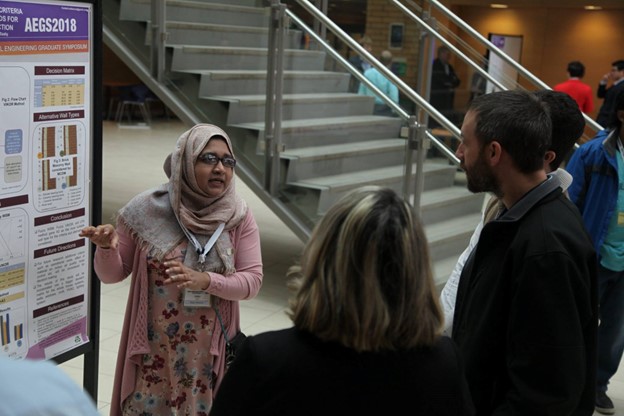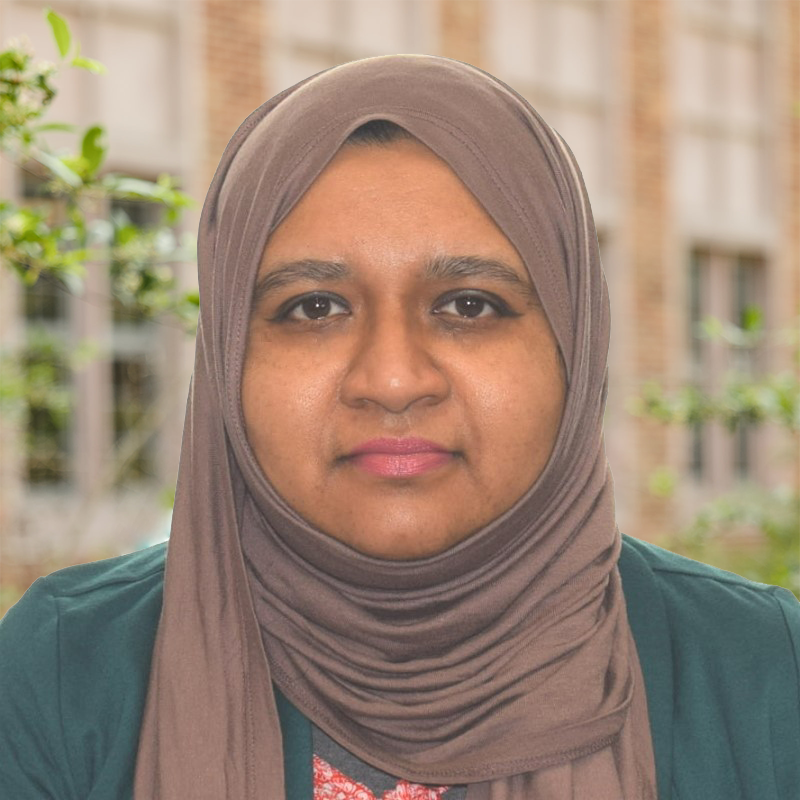Post Doctoral Scholar, UW
Anber Rana is a postdoctoral researcher at the University of Washington. Her academic journey has been marked by a commitment to advancing sustainable and climate-resilient construction practices. Prior to her current role, Anber served as a Postdoctoral Research Fellow at the University of British Columbia (Okanagan), where she delved into research in this very domain. Anber’s academic background is rooted in Civil Engineering, with her earning a Ph.D. from the University of British Columbia (Okanagan). During her doctoral studies, her research was centered on techno-economic evaluation of energy-efficient technologies imperative for realizing green buildings. She also embarked on a critical examination of building energy codes, assessed the efficacy of financial incentives, conducted comprehensive data monitoring and analysis, and harnessed the power of life cycle thinking methodologies (life cycle assessment, life cycle cost analysis, and social life cycle analysis) and decision-making processes in her work. She is passionate about conducting interdisciplinary through evaluation of climate mitigation techniques for built environment.
by Anber Rana
I am a professional architectural engineer with over five years of experience in researching and teaching sustainable built environments. My passion for sustainable construction was ignited by the environmental impacts of construction industry. This instilled in me the significance of finding solutions for sustainable built environment.
My educational journey includes a bachelor’s and master’s degree in building engineering, where I honed my expertise in building sciences. However, my direct exposure to life cycle assessment and embodied carbon of buildings began when I joined the Life Cycle Management Laboratory (UBC Okanagan) for my PhD studies. During this time, I had the privilege to engage in interdisciplinary research and collaborate on various industry projects. This allowed me to apply life cycle assessment tools such as SimaPro, GaBi, and Athena to real-world challenges, ranging from material analyses to water treatment systems and from oil spill recovery management to extensive recreational structures.
My PhD research made me realize the vast knowledge gaps in the built environment research field, sparking a desire to delve deeper into these issues. Subsequently, I joined the same institute as a postdoctoral research fellow, contributing my expertise to both the Life Cycle Management Laboratory and the Green Construction Research and Training Centre (GCRTC). Here, I delved into advanced research on materials and technologies designed for climate-resilient construction. Additionally, I collaborated on projects related to indigenous communities in Canada and participated in initiatives to reduce embodied carbon, working closely with the UBC Campus Sustainability team.
A pivotal moment in my career was my involvement in the Embodied Carbon Pilot project, which underscored the importance of focusing on the embodied carbon of buildings—a domain still in need of substantial development, especially given the growing emphasis on climate resilience. This coupled with my background in architectural engineering offered new insights into LCA field. As highlighted in one of the findings from the embodied carbon report:
“There are numerous factors impacting the consistency, reliability, and variability of whole-building LCA (WBLCA) results, making them rarely comparable. Therefore, it is crucial to define assessment parameters, such as goals, scope, data sources, and assessment tools, ideally before commencing data collection.”
My journey led me to the Carbon Leadership Forum (CLF) through my work on the Embodied Carbon Pilot with the UBC team. While my primary engagement was with the CLF Vancouver chapter, I also developed a keen interest in carbon mitigation policies in the United States. Consequently, I seized the opportunity to join the Carbon Leadership Forum at the University of Washington as a postdoctoral researcher. In this role, I have been actively involved in the ARPA-E Project and actively involved in creating Life Cycle Assessment Training program for our staff. My work here has expanded my horizons, allowing me to delve into emerging LCA areas, including dynamic LCA and land-use and land-use change. Recently, I had the privilege of participating in a workshop for the ARPA-E Project, collaborating with multiple institutes that are developing better materials and building systems for a carbon-neutral future.
Being part of CLF offers hope for a brighter future, where I aim to uncover solutions to the persistent challenges in large-scale LCA implementation and maximize its benefits swiftly.

Engaged in conveying the findings of my research.

“A pivotal moment in my career was my involvement in the Embodied Carbon Pilot project, which underscored the importance of focusing on the embodied carbon of buildings—a domain still in need of substantial development, especially given the growing emphasis on climate resilience.”